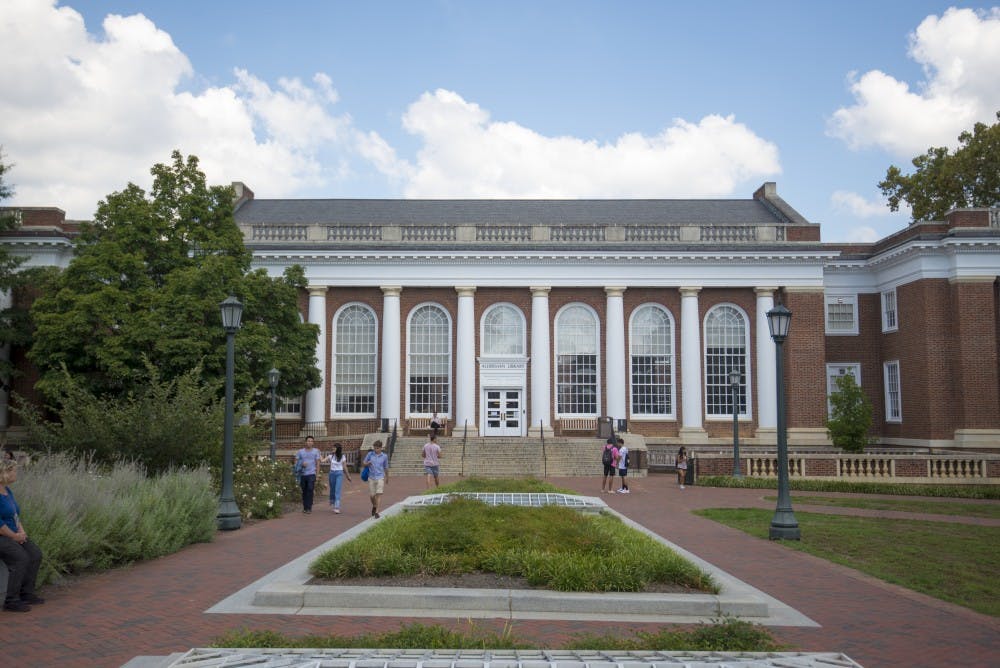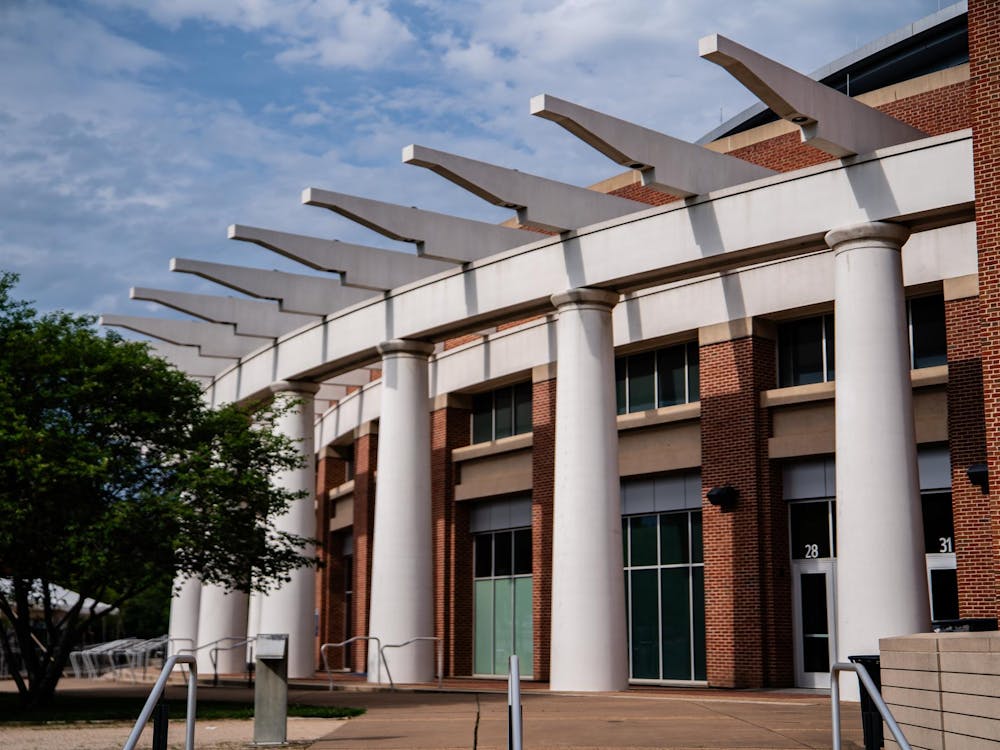Two predominant voices in the debate over the future of Alderman Library are disagreeing on the number of books that will remain in its stacks after the renovation designs received approval by the Board of Visitors earlier this month.
John Unsworth, the University’s Dean of Libraries and an English professor, sent a memo on Sept. 10 to the Board of Visitors outlining his reasoning surrounding the continuation of the Alderman renovations. The memo specifically responded to the concerns of those who signed a petition against the loss of shelving space in the spring.
The renovations, continuing despite protest from some students and faculty, plan to decrease the amount of shelving space for print books in the library. Initially, the plans announced a loss of books to be within 30 to 60 percent.
There are currently some disagreements as to the number of books that will be removed from the Alderman stacks during the renovation. According to the figures given in Unsworth’s memo, the number of books on shelves will be reduced by 18 percent.
However, according to a letter with contradictory calculations done by John Bugbee, a visiting scholar in the English department and University alumnus, those numbers would be much higher — marking at least a 44 percent decrease in books on shelves.
“It would be very useful to have a sit-down with some other interested parties looking on and go through those plans, detail by detail, and see … if they need to be adjusted,” Bugbee said in an interview. “It’s a process of trying to find out what the truth is about what the building that has been proposed would contain.”
The discrepancy between “books on shelves” and shelving space is important to both parties. Because shelving encompases much more than the books and documents used regularly by students, both individuals agree that the most important consideration should be the books on shelves to which students and faculty will have access.
According to Unsworth, the percentage discrepancy between the two calculations lies in the specific areas of the library that are being used in calculations — the calculations that Bugbee refers to include four levels of the stacks that are primarily used for processing while Unsworth’s numbers do not include that area, as they are currently not used to shelve books. Unsworth said the two letters use different estimates for possible stack space, and therefore have different estimates of book losses.
“There are four levels of the stacks that are locked — those are included in [the other] calculations and those have been locked for decades,” Unsworth said. “They're used for processing space. Things that are in that space, coming either in or out of the collection, are not in our volume count.”
The plans must be approved by the Virginia General Assembly in order for the original renovation timeline to proceed as scheduled. If maintained, construction will be scheduled to begin in 2020, according to the University website. The $160 million renovation plans were approved by the Board in June and refined by the Board earlier this month.
In his memo to the Board, Unsworth emphasized the need for renovation in Alderman and the safety concerns a lack of renovation could bring. One of the main reasons for the renovations is to update Alderman’s fire and safety regulations.
“[A]ny life-safety intervention in this building will cost some book- storage, even if no floorspace were subtracted—for example, just adding sprinklers to the current stacks would cost at least 20% of shelving,” Unsworth wrote.
Unsworth also noted the danger the students and book collections are under in Alderman’s current condition.
“‘No Less Shelving’ is the same as ‘No Renovation,’ and that’s not a responsible choice to make here: this building needs major intervention if it is going to be safe for people and collections in the future,” Unsworth said.
The renovations will update the library to current Americans with Disability Act regulations as well, allowing students of all capabilities to use its resources.
John Bugbee wrote a letter Sept. 11 to University President Jim Ryan stating that the numbers given for shelving space in the new renovations are unrealistically optimistic, positing that they do not use realistic estimates of book density.
According to Bugbee, industry experts have found humanities research books to fit onto shelves at a rate of no more than eight books per foot. Any number higher than that is considered “unrealistic,” he wrote, or in the most extreme cases, “intolerable.”
Under the current renovation plans, shelving will be spread across both Alderman and Clemons libraries to compensate for the loss of shelving space in Alderman’s new stacks.
“Under what appear to be very reasonable, even generous, assumptions, the two buildings as currently planned look able to offer homes to at most [1 million] volumes from the current [Alderman and Clemons] collection … they might offer homes to fewer than 900,000,” Bugbee wrote. “Given that the collection currently numbers about 1,830,000 volumes, the loss involved would be at least 44%, and quite possibly much more.”
Unsworth said the user’s access to books within the library is the most important aspect to consider during the renovations.
In his memo, Unsworth also mentions the concern for study space. According to the current renovation plans, the number of seats within Alderman will increase from 850 to 1,288, enabling more students to use the library at any given time.
“[The renovations will] significantly increase the amount of seating for students,” Unsworth said in an interview. “This is our most heavily used library building.”
Bugbee said there should be a middle ground between the renovation plans and those protesting them — a way to maintain shelving and book space while also updating the library’s infrastructure.
“The compromise would be [to] see if we can do this in a way that makes people happy [and] also does what improvements to the building … Are needed, but also keeps the collection as close to its current size as we possibly can,” Bugbee said in an interview.
However, Bugbee wanted to stress even the individuals that are protesting the reduction of shelving space acknowledge that the library needs to be renovated.
“We can, and indeed should, have a renovated library building; but there is no need to damage in the process the one irreplaceable resource that the library is meant to provide,” Bugbee said in his letter to the Board.
University Rector Frank Conner did not return an email asking about the petition’s effect on renovations plans.
A previous version of this article incorrectly described Unsworth and Bugbee’s disagreement as over shelving space. It has been updated to accurately describe their disagreement as a dispute over number of books on shelves. This article has also been updated to accurately reflect Bugbee’s as a current, not former, visiting scholar.







